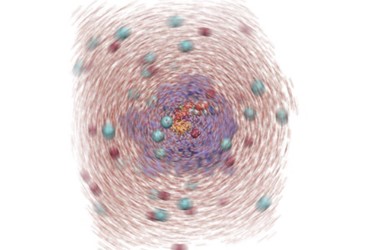Variation In Cancer-Causing KRAS Mutations Greater Than Thought

The effects of KRAS mutations underlying many different types of cancer are more diverse than previously thought, according to a new study led by the University of Eastern Finland. Different mutations in the same amino acid of the KRAS protein have so varied effects on protein function that they may require different approaches when it comes to treatment and drug development.
The findings were published in PLOS Computational Biology.
Mutations occurring in the proteins of the human body often constitute a critical factor that predisposes to cancer development. In this sense, one of the most important proteins is KRAS, whose mutations play a role in the development of pancreatic cancer, among others. Point mutation of the glycine 12 amino acid of the KRAS protein can – depending on the mutation – cause glycine to mutate into any of the six possible different amino acids, all of which make the protein overactive. This causes uncontrolled cell growth and, consequently, the development of cancerous tissue.
Previously, all of the six different mutations occurring in the same location of the KRAS protein were regarded equal in their function. However, this may not be the case, as the newly published study now shows that these mutations are not fully random: different mutations occur more or less frequently in different tissue types. This suggests that different mutations may have a different effect on protein function.
The researchers conducted a thorough analysis of the effects of different mutations on protein function with the help of computer-simulated molecular dynamics. The simulation showed that different mutations have different effects on protein dynamics and, consequently, on protein function. These observed differences may partially explain why different mutations occur more or less frequently in different tissue types.
The study is the first to show that different mutations occurring in the same location have a different effect on the molecular-level function of the KRAS protein.
Mutations of the glycine 12 amino acid of the KRAS protein are most frequently discovered in cancer tumours of the colon, lungs and pancreas, and they are especially common in pancreatic ductal adenocarcinoma. Among the common cancers, pancreatic ductal adenocarcinoma is associated with the worst prognosis, with no effective treatment alternatives available. The findings enhance our understanding of the effects of different mutations. In the future, they may help in the development and selection of drug therapy alternatives targeting the function of the mutated KRAS protein.
The study was conducted in collaboration between the University of Eastern Finland, Tampere University of Technology, the University of Tübingen in Germany and the University of Helsinki. A Finnish supercomputer administered by CSC – IT Centre for Science Ltd. was used in the study.
The study was funded by the Academy of Finland and the EU.
About The University of Eastern Finland, UEF
The University of Eastern Finland, UEF, is one of the largest universities in Finland. The activities of the UEF underscore multidisciplinarity, and the university is especially strong in research related to forests and the environment, health and well-being, and new technologies and materials.The UEF offers teaching in more than 100 major subjects. In addition to the high standard of teaching, the university offers its students a modern study environment, which is under constant development.The university comprises four faculties: the Philosophical Faculty, the Faculty of Science and Forestry, the Faculty of Health Sciences, and the Faculty of Social Sciences and Business Studies. The university’s campuses are located in the heart of beautiful eastern Finland in Joensuu, Kuopio and Savonlinna.The UEF is home to approximately 15 000 students and nearly 2 800 members of staff.
Source: The University of Eastern Finland
